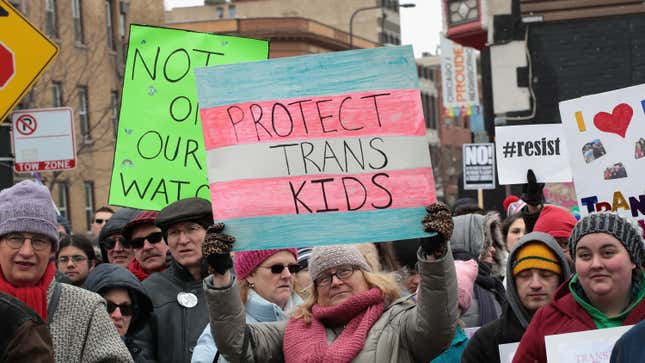Trans Youth Have Always Sought Out Gender-Affirming Medical Care
Latest

Earlier this week, Arkansas became the first state to pass a bill making it illegal for doctors to provide gender-affirming medical care to trans kids—just the latest piece of anti-trans legislation in a year that has already seen a record number of bills targeting trans youth.
One of the more common refrains of transphobic Republican lawmakers attempting to legislate away trans children’s autonomy is the argument that gender-affirming medical care for trans kids is a “new” concept. Not only is that “belief” predicated on the erasure of trans and gender non-conforming people in the past, but it’s also blatantly false. In actuality, there is a long and well-documented history of trans youth seeking supportive medical care and other advice on medically transitioning.
-

-

-

-

-

-

-

-

-

-

-

-

-

-

-

-

-

-

-

-

-

-

-

-

-

-

-

-

-

-

-

-

-

-

-

-

-

-

-

-








































